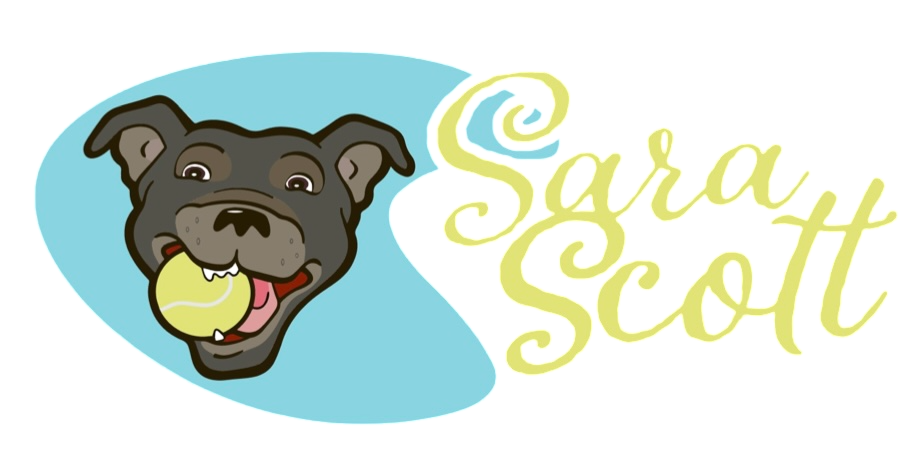Sorry Boss, My Dog Doesn't Care About ROI
- Sara Scott

- Dec 4, 2023
- 4 min read
You eagerly arrive home, excited to train your pup's newest trick that he mastered yesterday - rolling over on cue. "Roll over!" you say, and your dog quickly flips onto his back without hesitation, tail wagging for their reward. You laugh and toss them a treat, thrilled with their consistency.
Then a thought hits you. This trick is mastered - time to get more bang for my buck! Why should I keep "paying" them at this point? They know what to do already. An efficient capitalist would start cutting costs when productivity plateaus! Maybe training sessions should get longer and I'll slim the treat payouts down to the bare minimum necessary. Sorry buddy, but no more free handouts for yesterday's news! We gotta keep innovating and putting in maximum work ethic around here!
Do such thoughts of return on investment, effort equals reward, and maximum output sound familiar? As owners, we often import the capitalistic values our society is built around into our dog’s training. We want to see results for our time and “pay” given. But dogs don't only operate on dollars and cents - they connect through emotion, relationship and their own autonomy.

Why Should I Keep Paying You?
Capitalist thinking prioritizes productivity and profits and so owners often stop giving food rewards once a behavior seems well established. But just because your dog complies reliably for a while doesn’t mean positive reinforcement stops being important! Consistent rewards cement habits long-term. Prematurely ceasing “payment” risks backsliding. If you want behaviors to stay strong, you have to continually reinforce them. Yet owners often act like capitalists - reluctant to keep incentivizing an “acquired” skill that’s now the norm, especially with valuable resources like tasty treats.
So, should food rewards stop? Absolutely not! Continued reinforcement sustains reliability even for mastered skills. However, using more reward avenues beyond edible treats creates sustainability long-term. If you're like me, you don’t want to be a walking hot dog dispenser forever! The good news? We can leverage conditioned reinforcement making it easy to pay our dog for behaviors all the time and give them plenty for free too.
Conditioned Reinforcers - The Power of Pairing
Conditioned reinforcers take on rewarding qualities through pairing with primary reinforcers like food. For example:
Hand clap always precedes treating desired behavior.
After repeated pairings over time, the hand clap alone starts to reinforce behaviors without always needing treats.
Additionally, cues for previously taught behaviors can themselves act as conditioned reinforcers! For example, you ask for a “sit”, then cue “down”, then call your dog to “come” before finally giving a food reward. Although only the recall was directly reinforced with food, each behavior was actually reinforced. Each cue functions as a reinforcer itself through the training history and predictive relationship with food rewards.
Environment as Reinforcement
You can also reinforce your dog's behavior by allowing access to something in the environment. For example, teaching "Go sniff!" or "Go say hi!" as cues unleashing your dog to follow their nose or greet another dog. Or "Go pee!" sending them to mark their favorite tree or "Go chase squirrel!" releasing them to dart after a bushytail. Using real world stimuli as reinforcers is smart training.
Relationship as Reinforcement
If you love your job, pay isn't the only reason you show up - you're intrinsically motivated by enjoyment and purpose. Similarly, a strong human-animal bond can make engaging with you self-reinforcing for dogs. This rapport requires clarity when communicating, a history of positive experiences together, trust, and time.
Intrinsic Reinforcement
Not everything needs to be human centric. Many dog behaviors provide their own built-in reinforcement. Their natural motivations stem from ancestral lineages adapted over generations to enjoy and repeat actions tied to survival and fulfillment. For example, digging taps into foraging and environmental investigation - exposing scents and textures delivers its own reward. And chewing meets oral fixation needs - a rich sensory experience. While training channels some natural behaviors constructively, they didn't emerge for human purposes. Remember, dogs inherently delight in actions sparking their heritage independent of any external reinforcement we offer. And that’s ok.
It’s perfectly alright - and truly generous - to offer your dog enriching forms of reinforcement simply because you care, not contingent on cues performed. Don't hesitate to indulge your dog at times solely out of love, not purely for transactional reasons.
Takeaway: Your Dog Isn’t a Business Asset
When importing capitalist ideals around productivity and return on investment into training contexts, we lose sight of our dogs’ emotional realities. Transactional mindsets cause us to underpay or undervalue them. Pay your dog for every behavior you cue, as much as you can and sometimes just give things to them for free.
As dog owners, remember our duty goes beyond conditioning behaviors alone. If obedience feels like a bank account you make frequent deposits and withdrawals from instead of a language bringing you closer together, reconsider your mindset. Never sacrifice relationships for productivity because the relationship with your dog is worth so much more than your dog's productivity.
If this piece resonated and you're seeking lasting solutions for reactivity, my customized Behavior Coaching programs can help. Whether fear, frustration or overstimulation are causing struggles, I create tailored action plans addressing root triggers behind unwanted outbursts. Clear guidance, from video troubleshooting to emotional support navigating setbacks, empowers your ability to read stress signals early and redirect problem behavior into constructive outlets. Let’s talk about your unique situation and map out a management strategy catered to your best friend’s needs.




Comments